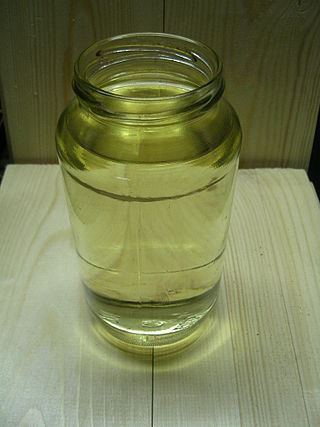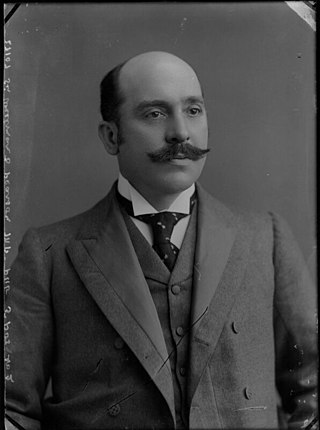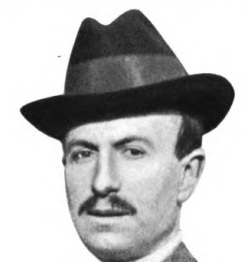S. Bowley and Son was a manufacturer of lubricants, oils, soaps and candles, founded in 1744. [1]
S. Bowley and Son was a manufacturer of lubricants, oils, soaps and candles, founded in 1744. [1]
S. Bowley and Son was founded by Joseph Bowley, in Westminster in 1744 to manufacture soap and candles, and to refine oil. [2] In 1868, the company built the Wellington Works at Battersea Bridge and moved there. [1]
In 1883, there was a major fire at the Wellington Works distillery that resulted in the destruction of two barges moored beside the works, the distillery and warehouses and boiler house. [3]
The company was an early producer of petroleum fuels for motor cars, in 1902 it was one of the four London refineries that held a license to import oil in barges along the River Thames. [4] By 1910, they were producing specialist fuels for aircraft. [5]
In 1935, the company established Bowley's Quarries Ltd as a subsidiary, and purchased the Gaertheiniog slate quarry in Wales. [6] The quarry closed in 1937. [7]
By the early 1950s, the company was primarily making paint, [8] and at the end of the decade it was manufacturing hand trucks and trolleys. [9]
In 1963, the company was wound up. It was succeeded by Bowley and Coleman Trucks Ltd, based in Bedfordshire, which continued to produce the hand trucks and trolleys. [10]

Gasoline or petrol is a petrochemical product characterized as a transparent, yellowish, and flammable liquid normally used as a fuel for spark-ignited internal combustion engines. When formulated as a fuel for engines, gasoline is chemically composed of organic compounds derived from the fractional distillation of petroleum and later chemically enhanced with gasoline additives. It is a high-volume profitable product produced in crude oil refineries.
Coventry Victor was a British motorcycle and car manufacturer. Originally Morton & Weaver, a proprietary engine manufacturer in Hillfields, Coventry, founded in 1904, the company changed its name to Coventry Victor Motors in 1911. The company closed in 1971.

Petroleum products are materials derived from crude oil (petroleum) as it is processed in oil refineries. Unlike petrochemicals, which are a collection of well-defined usually pure organic compounds, petroleum products are complex mixtures. Most petroleum is converted into petroleum products, which include several classes of fuels.

Eneos Corporation, formerly JXTG Nippon Oil & Energy Corporation, or NOC or Shin-Nisseki (新日石) is a Japanese petroleum company. Its businesses include exploration, importation, and refining of crude oil; the manufacture and sale of petroleum products, including fuels and lubricants; and other energy-related activities. It is the largest oil company in Japan, and in recent years it has been expanding its operations in other countries.

Weetman Dickinson Pearson, 1st Viscount Cowdray,, known as Sir Weetman Pearson, Bt between 1894 and 1910, and as Lord Cowdray between 1910 and 1917, was a British engineer, oil industrialist, benefactor and Liberal politician. He was the owner of the Pearson conglomerate.

J. A. Prestwich Industries, was a British engineering equipment manufacturing company named after founder John Alfred Prestwich, which was formed in 1951 by the amalgamation of J. A. Prestwich and Company Limited and Pencils Ltd.
The Distillers Company plc was a leading Scotch whisky company and, at one time, a constituent of the FTSE 100 Index. It was taken over in 1986 by Guinness & Co. and is now part of Diageo.

Karrier was a British marque of motorised municipal appliances and light commercial vehicles and trolley buses manufactured at Karrier Works, Huddersfield, West Yorkshire, by Clayton and Co. (Huddersfield) Limited. They began making Karrier motor vehicles in 1908 in Queen Street South, Huddersfield. In 1920, H.F. Clayton sold Clayton and Co's Huddersfield business into public listed company Karrier Motors while keeping their Penistone operation separate. Mechanical and electrical engineers Clayton & Co Penistone, remain active in 2020 as Clayton Penistone Group.

Chennai Petroleum Corporation Limited (CPCL), formerly known as Madras Refineries Limited (MRL), is a subsidiary of Indian Oil Corporation Limited which is under the ownership of Ministry of Petroleum and Natural Gas of the Government of India. It is headquartered in Chennai, India. It was formed as a joint venture in 1965 between the Government of India (GOI), Amoco and National Iranian Oil Company (NIOC), having a shareholding in the ratio 74%: 13%: 13% respectively. From the grassroots stage CPCL Refinery was set up with an installed capacity of 2.5 million tonnes per year in a record time of 27 months at a cost of ₹430 million (US$5.2 million) without any time or cost overrun.
The Marmon-Herrington Company, Inc. is an American manufacturer of axles and transfer cases for trucks and other vehicles. Earlier, the company built military vehicles and some tanks during World War II, and until the late 1950s or early 1960s was a manufacturer of trucks and trolley buses. Marmon-Herrington had a partnership with Ford Motor Company, producing trucks and other commercial vehicles, such as buses. The company may be best known for its all-wheel-drive conversions to other truck maker's units, especially to Ford truck models. Founded in 1931, Marmon-Herrington was based in Indianapolis, Indiana, with a plant in Windsor, Ontario, and remained in Indianapolis until 1963. It is now based in Louisville, Kentucky.
Robert Paxton McCulloch was an American entrepreneur from Missouri, best known for McCulloch chainsaws and purchasing the "New" London Bridge, which he moved to Lake Havasu City, Arizona—one of the cities he founded.

Frederick Richard Simms was a British mechanical engineer, businessman, prolific inventor and motor industry pioneer. Simms coined the words "petrol" and "motorcar". He founded the Royal Automobile Club, and the Society of Motor Manufacturers and Traders.

Shell Haven was a port on the north bank of the Thames Estuary at the eastern end of Thurrock, Essex, England and then an oil refinery. The refinery closed in 1999 and the site was purchased by DP World who received planning consent in May 2007 for the new London Gateway deep water container port at the site. The neighbouring Coryton Refinery remained in operation until 2012.

Straker-Squire was a British automobile manufacturer based in Bristol, and later Edmonton in North London.
Gushan Environmental Energy Limited, is a biodiesel producer in China that was incorporated on May 16, 2006. The Company produces biodiesel and by-products of biodiesel production, including glycerol, plant asphalt, erucic acid and erucic amide. Biodiesel is a renewable, clean-burning and biodegradable fuel produced from a variety of feedstocks, such as vegetable oil, animal fat and recycled cooking oil. Currently there are 5 production facilities located in Beijing, Shanghai, Mianyang in Sichuan province, Handan in Hebei province and Fuzhou in Fujian province, serving the northern, interior and southeastern regions of China respectively. Biodiesel is used to fuel a range of diesel engines, typically after blending with diesel, including diesel engines found in trucks, mass transit vehicles, marine vessels and generators. The by-products of its biodiesel production have commercial applications in the food, pharmaceutical and manufacturing industries. The Company sells its products in China to direct users, including marine vessel operators, petroleum wholesalers and individual retail gas stations. The Company primarily uses vegetable oil offal and used cooking oil to produce biodiesel. It acquires the raw materials supply for each of its production facilities primarily from local suppliers.
W. H. Burford and Sons was a soap and candle-making business founded in Adelaide in 1840 by William Henville Burford (1807–1895), an English butcher who arrived in the new colony in 1838. It was one of the earliest soapmakers in Australia, and up to the 1960s when it closed, the oldest. In 1878 he took his two sons Benjamin and William into partnership as W. H. Burford & Sons. Its expansion, accompanied by a number of takeovers, made it the dominant soap manufacturer in South Australia and Western Australia. Its founders were noted public figures in the young city of Adelaide.
J.R. Rix & Sons Ltd is a family-owned British business that is headquartered in Hull, East Riding of Yorkshire. The roots of the company date back to 1873 when founder Robert Rix, the son of a Norfolk farmer, established a ship building business in Teesside, which he subsequently moved to Hull in 1883.
Petroleum refining in the United Kingdom produced around 51.45 million tonnes of petroleum products in 2023, down 16% from 2015 and 32% from 2011. There are six major and one minor petroleum refinery in the downstream sector of the UK oil industry.

SB Centaur is a wooden Thames sailing barge, built in Harwich, Essex, England in 1895. She was used to carry various cargoes, mainly grain, for the next 60 years. During the First World War she carried food and coal to the French Channel ports. During the Second World War Centaur was damaged when sailing to assist with the Dunkirk Evacuation. She did war work for the duration of the conflict.

John Knight was an English businessman and founder of John Knight Soap Works in London, which later became The Royal Primrose Soap Works.